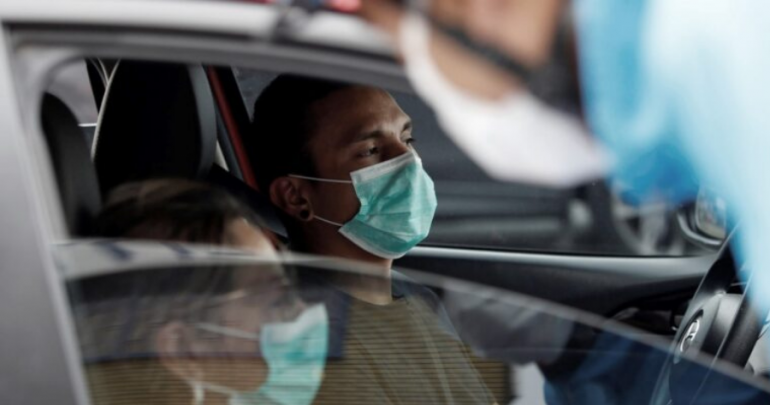The Minister of Transport, Communications and Works, pursuant to paragraph 2.2 (p) of the Infectious Diseases (Definition of Measures to Prevent the Spread of the Coronavirus COVID-19) Decree (No. 11) of 2021, issues the following guidelines:
1. Public Passenger Μεταφορές
1.1. The maximum number of passengers that can carry Public Transport - M.D.M. (Regular Passenger Buses with fare per passenger, Buses with E License, Buses used for shuttle services to and from airports (shuttle)), as well as private buses with road license, in all provinces of Cyprus, is defined until the 50% of the capacity of each bus, with the exception of buses for which a special permit is granted by the Ministry of Transport, Communications and Works, in which a higher percentage of capacity is determined.
1.2. The maximum number of passengers that can carry buses carrying only students, to and from their educational institutions (public and private), in all the provinces of Cyprus is determined as 50% of the capacity of each bus, with the exception of buses for which a special permit is granted by the Ministry of Transport, Communications and Works, in which a higher percentage of capacity is determined.
1.3. The maximum number of Passengers that can carry buses with a Road Use License for a large family is set at 100% of the capacity of each bus.
1.4. The maximum number of passengers that taxis can carry is 50% of the taxi specified in the Road Use License. Where the 50% is not an integer, the number is rounded to the integer immediately below, with the exception of taxis for which a special permit is granted by the Ministry of Transport, Communications and Works, which determines a higher percentage of capacity.
2. Private Passenger Transport
2.1. Private vehicles can be driven by members of the same family (household), including minor children of the family, depending on the capacity of the vehicle, without the use of a mask.
2.2. In cases of transportation by vehicle of persons from different households, it is allowed to ride in the vehicle up to three (3) persons, including the driver, with the necessary use of a mask.
2.3. For travel purposes for work with a private vehicle with a capacity of more than five (5) people (eg construction workers, transporters, etc.), it is allowed to ride up to four (4) people, including the driver, with the necessary use of a mask.
2.4. For travel purposes for work with a private vehicle with a capacity of up to five (5) people, up to three (3) people are allowed to ride, including the driver, with the necessary use of a mask.
3. Additional instructions for Public Passenger Transport
3.1. Where a bus does not have a driver's cab and a protective membrane separating it from the entrance of passengers, the seats behind the driver as well as the first seat on the left (driver's seat - where there is one) must remain empty.
3.2. All necessary measures are taken to avoid overcrowding during boarding and disembarking.
3.3. There must be a liquid hand sanitizer at the entrance of each bus for use by all passengers.
3.4. Buses must be cleaned and disinfected frequently, definitely before the start of the service and during the day. Cleaning / disinfection should be done at least every four routes and, where possible, cleaning / disinfection should be done at the end of each route. Cleaning / disinfection should be done carefully, especially on surfaces that are often touched such as handles, handles, metal surfaces, seat belts, rails, etc., using disinfectants and materials recommended by the Ministry of Health.
3.5. At each bus stop, at the end of each route and at each break, the bus doors remain open, as well as windows and skylights if any.
3.6. The buses referred to in paragraph 1.2 of this notice must, in addition to the general guidelines for cleaning and disinfecting the buses mentioned above, be disinfected before and after the transfer of students.
3.7. It is recommended that students sit in a predetermined position daily, where possible.
3.8. It is also recommended that students who belong to the same department or are siblings sit next to each other.
3.9. The buses do not use air conditioning systems with air recycling and use windows and skylights (open) where they exist.
3.10. The use of a face mask by employees and passengers on all regular passenger buses with a fare per passenger, as well as on all means of public transport (taxis, tour buses, shuttle services to and from airports (shuttle)) age, continues to be mandatory in all provinces.
The above measures are implemented from their publication on the official website of the Ministry of Transport, Communications and Works.
